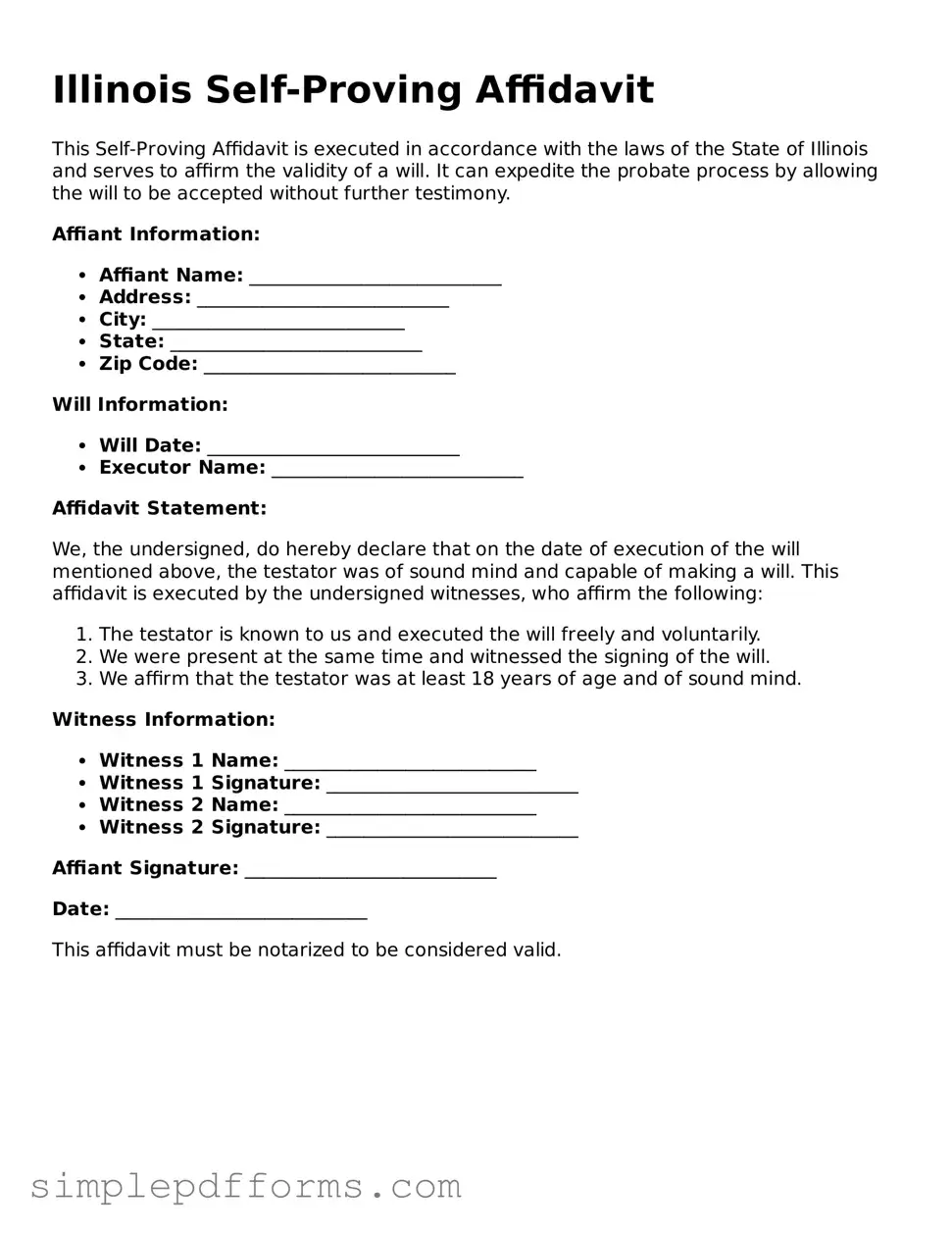Attorney-Verified Self-Proving Affidavit Document for Illinois State
The Illinois Self-Proving Affidavit is a legal document that allows a testator's will to be validated without the need for witnesses to appear in court. This form simplifies the probate process by providing proof that the will was executed properly. Understanding its purpose and requirements is essential for anyone involved in estate planning in Illinois.
Open Self-Proving Affidavit Editor Now

Attorney-Verified Self-Proving Affidavit Document for Illinois State
Open Self-Proving Affidavit Editor Now

Open Self-Proving Affidavit Editor Now
or
Get Self-Proving Affidavit PDF Form
Your form is waiting for completion
Complete Self-Proving Affidavit online in minutes with ease.